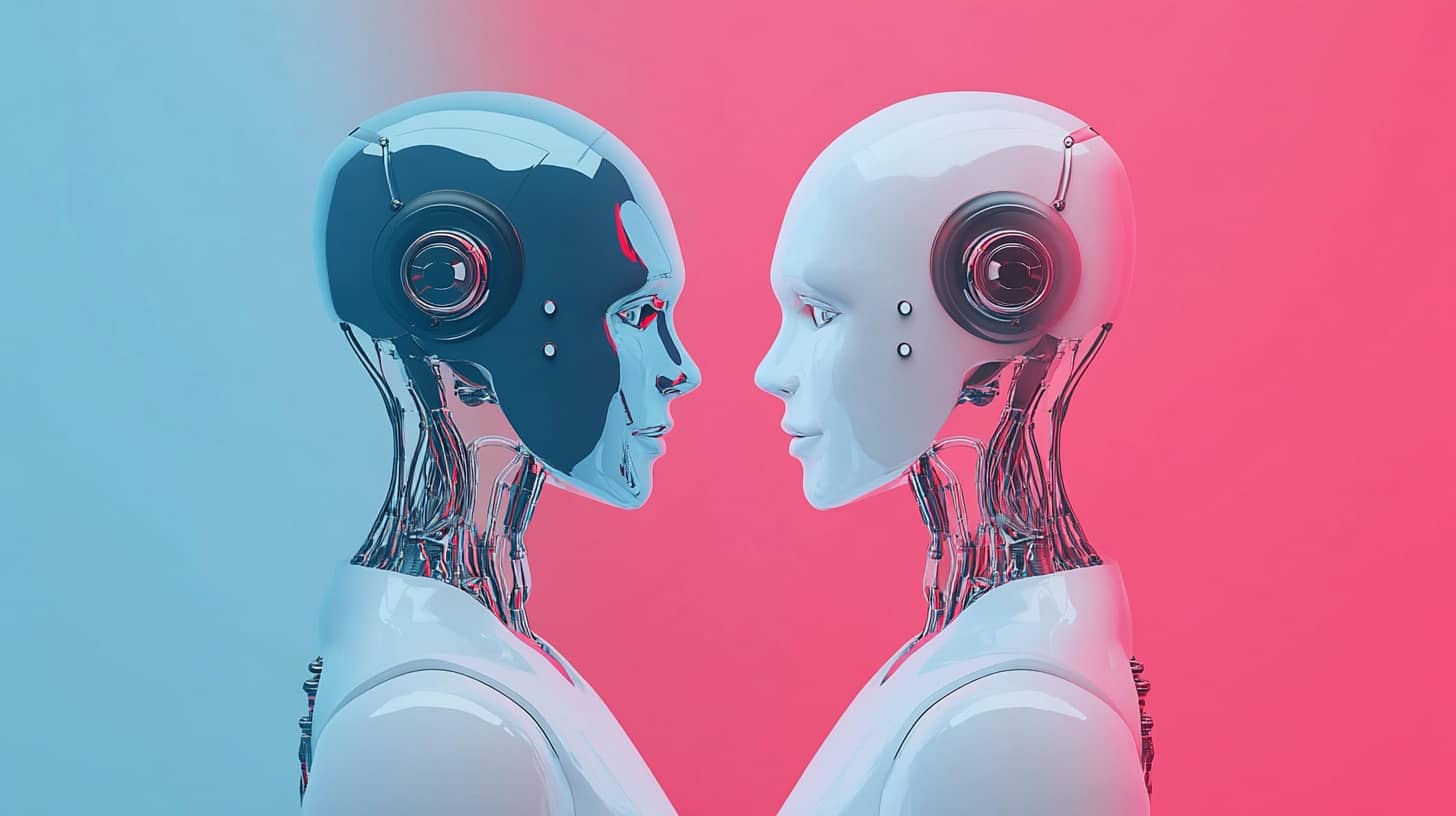The truth is, consistency doesn’t come from hustle — it comes from systems that never stop working for you.
That’s what a 7-Day AI Content Calendar does: it transforms scattered effort into a sustainable rhythm.
It helps you plan once, automate intelligently, and stay visible without feeling like a machine.
“The bad news is time flies. The good news is you’re the pilot.” — Michael Altshuler
In this guide, you’ll learn how to build a 7-day publishing system that adapts to your energy, recycles your best ideas, and grows with your brand.
Because success online isn’t about posting daily — it’s about creating a system that does.
The secret to consistent publishing isn’t motivation — it’s rhythm.
Every creator talks about “discipline,” but what actually keeps content flowing is structure.
And when that structure is powered by AI, you can plan once and stay visible forever.
Most solopreneurs overcomplicate content calendars.
They design elaborate spreadsheets, color-coded systems, and task lists that collapse within weeks.
What you really need is a calendar that thinks with you — one that learns your pace, predicts your energy, and automates the rest.
That’s what a 7-Day AI Content Calendar does: it replaces decision fatigue with design flow.
Why most content calendars fail
The truth is, most “systems” fail before they start — not because they’re too simple, but because they’re too perfect on paper.
The “perfect plan” problem
Creators love planning more than executing.
They spend hours crafting the ideal posting schedule, only to abandon it when real life interrupts.
Rigid plans crumble because creativity isn’t static; it ebbs and flows.
A strong content calendar doesn’t demand perfection — it absorbs fluctuation, echoing principles shared in this main framework.
It anticipates downtime, distractions, even bad ideas, and still keeps publishing.
AI can do this by detecting when you’re slowing down and filling those gaps automatically.
“Plans are worthless, but planning is everything.” — Dwight D. Eisenhower
That’s the paradox: planning is essential, but flexibility is survival.
A calendar that updates itself ensures you never lose your creative pulse.
Why rigid systems kill creativity
Traditional calendars assume consistency equals productivity.
But if every day feels the same, creativity suffocates.
The goal isn’t to post mechanically — it’s to sustain meaning through structure.
AI lets you design a system that breathes.
It can adjust your weekly rhythm based on engagement data, sleep cycles, or even emotional tone detected in your writing.
Your output becomes natural — not forced.
“In the beginner’s mind there are many possibilities, in the expert’s mind there are few.” — Shunryu Suzuki
AI restores that beginner’s curiosity — the feeling that every post could become something new.
The illusion of productivity vs progress
Many creators equate movement with momentum.
They fill calendars with micro-tasks — edit video, repurpose tweet, write caption — and wonder why nothing compounds.
But movement without direction only multiplies fatigue.
Progress is cumulative.
Instead of doing more, do the right things repeatedly and let AI automate the rest.
Productivity expert Cal Newport calls this shift from “busy work” to “deep systems”:
“If you don’t produce, you won’t thrive — no matter how skilled or talented you are.” — Cal Newport
Deep work isn’t about speed; it’s about intentional focus — and AI helps you preserve that focus by removing redundant tasks.
The 7-day publishing rhythm that actually works
A sustainable content calendar isn’t about filling seven boxes.
It’s about creating a cyclical flow that balances creativity, analysis, and rest.
Each day serves a purpose — and AI ensures the system stays alive without your constant supervision.
1. Thematic Clustering (grouping by goal or tone)
Instead of starting each day from zero, assign each day a theme.
This reduces decision fatigue and builds narrative continuity.
| Day | Theme | Focus |
|---|---|---|
| Monday | Inspire | Stories, lessons, or quotes that spark reflection |
| Tuesday | Teach | Tutorials, frameworks, practical how-tos |
| Wednesday | Show | Behind-the-scenes, testimonials, workflows |
| Thursday | Discuss | Thought leadership or audience Q&A |
| Friday | Promote | Offers, launches, or case studies |
| Saturday | Repurpose | Clip, remix, or recycle best-performing content |
| Sunday | Reflect | Personal takeaways, vision, gratitude posts |
Feed these clusters into Notion or ChatGPT to auto-generate prompts for each theme weekly.
Example prompt:
“Generate one post idea per theme from my recent content archive, with fresh angles and CTA suggestions.”
“Organization is what you do before you do something, so that when you do it, it is not all mixed up.” — A.A. Milne
2. Energy-based planning (matching content to creative flow)
Not every day requires the same output.
Align creation intensity with your energy curve:
- High-focus days → write or record.
- Low-focus days → edit, schedule, or engage.
AI analytics tools like Motion or Reclaim can identify your natural productivity windows and suggest when to plan, publish, or pause, a finding supported by this Harvard study.
That’s how you maintain energy without sacrificing visibility.
“The key is not to prioritize what’s on your schedule, but to schedule your priorities.” — Stephen Covey
3. How AI adapts your rhythm dynamically
Your 7-day plan should evolve with performance.
AI can monitor what days and topics perform best, then reallocate content weight accordingly.
If your Thursday posts drive comments, your system learns to prioritize community-building that day.
It’s not a static schedule — it’s a living rhythm.
And the more data it gathers, the smarter it becomes.
“Without data, you’re just another person with an opinion.” — W. Edwards Deming
An adaptive content calendar ensures you never guess again — it knows when your message resonates.
Building your AI-powered calendar
An effective content calendar doesn’t need to be complex — it needs to be alive.
When your system connects ideas, timing, and automation, publishing becomes predictable without becoming mechanical.
AI allows you to transform a spreadsheet into a smart rhythm engine.
1. The core structure (topics, formats, frequency)
Every calendar starts with structure.
Your weekly rhythm should reflect both what you say and where you say it.
- Topics → the ideas your audience values (education, storytelling, product insight).
- Formats → posts, reels, newsletters, podcasts.
- Frequency → realistic, data-informed posting pattern.
Here’s a simple AI-driven mapping model:
| Layer | Purpose | AI Support |
|---|---|---|
| Idea layer | Capture and cluster ideas | ChatGPT / Notion AI |
| Planning layer | Assign format and platform | Metricool / Trello AI |
| Execution layer | Auto-generate captions or summaries | Jasper / Claude |
| Review layer | Analyze and optimize performance | Metricool Insights |
“Simplicity is the soul of efficiency.” — Austin Freeman
Your Content OS (from the previous article) becomes the database; your calendar is the control panel, directly complementing ideas explored in this parent article.
2. How to connect tools (Notion + Metricool + ChatGPT)
You don’t need to code to automate your workflow — only to connect your tools intelligently.
A typical setup looks like this:
- Capture ideas in Notion.
- Use a ChatGPT custom prompt to turn them into post outlines.
- Send finalized drafts to Metricool for scheduling.
- Let Metricool’s AI queue and repost top performers automatically.
Through Zapier or Make, you can build these bridges once and let them run for months,Through Zapier or Make, you can build these bridges once and let them run for months, aligning with this MIT analysis.
“The real problem is not whether machines think but whether men do.” — B.F. Skinner
Automation doesn’t think for you — it frees you to think deeper.
3. Example workflow prompt for automation
Here’s a proven workflow prompt you can integrate directly into your Notion + ChatGPT system:
“Act as my content operations assistant. Analyze this week’s ideas and assign them to my 7-day themes (Inspire, Teach, Show, Discuss, Promote, Repurpose, Reflect). Generate one headline, short caption, and call-to-action per day. Output in table format.”
This single prompt saves hours each week.
It trains AI to handle administration, while you handle direction.
And because it’s modular, you can update it as your strategy evolves.
“Automation does not make us superhuman. It helps us be more human by removing what dulls us.” — Cal Newport
When you automate what drains you, your creative presence expands.
Scaling without burnout: maintaining balance in automation
Automation without boundaries quickly becomes noise.
The goal isn’t infinite content — it’s sustainable clarity.
You must program pauses, reflections, and resets into your system.
1. Setting creative rest cycles
Just as athletes need recovery periods, creators need cognitive rest.
Schedule at least one “blank day” weekly — no publishing, only reflection.
AI can handle backlog reposting so your feed stays alive while you disconnect.
“Almost everything will work again if you unplug it for a few minutes, including you.” — Anne Lamott
Rest isn’t laziness — it’s optimization.
2. Using AI analytics to know when to pause
Overposting dilutes message quality.
AI analytics tools like Metricool or Notion dashboards reveal engagement drop-off points.
If interaction decreases after 10 posts per week, reduce output and deepen narrative quality.
Sustainable creators listen to feedback loops, not ego.
“Without reflection, we go blindly on our way, creating more unintended consequences, and failing to achieve anything useful.” — Margaret J. Wheatley
3. Why reflection is part of the system
A strong system doesn’t just execute — it learns.
Set aside monthly “system audits” to refine your automation.
Ask: What’s redundant? What’s repeatable? What’s resonant?
Prompts like this can help:
“Audit my 7-day calendar for redundant topics. Suggest 3 areas to deepen storytelling and 2 that can be automated further.”
Reflection ensures your workflow evolves with your goals.
Because a system that never questions itself eventually collapses.
“There is nothing so useless as doing efficiently that which should not be done at all.” — Peter Drucker
AI can handle repetition, but only you can steer relevance.
That’s how you scale — not through volume, but through vision.
A 7-Day AI Content Calendar isn’t about publishing more — it’s about publishing with purpose.
It replaces guesswork with rhythm and chaos with control.
When you combine automation with awareness, you move from content fatigue to creative flow.
“Don’t watch the clock; do what it does. Keep going.” — Sam Levenson
Because when your system works, your presence compounds.
And every week, your message grows stronger — even on the days you rest.
The future of publishing isn’t about speed — it’s about stability.
A smart creator doesn’t ask, “How do I keep up?” but “How can my system sustain me?”
A 7-Day AI Content Calendar isn’t just a productivity tool; it’s a creative companion.
It aligns your message with your momentum, keeping your presence alive while you focus on thinking, building, or simply resting.
“The greatest victory is to conquer yourself.” — Aristotle
You no longer need to chase algorithms or inspiration.
Your content rhythm is automated, your workflow optimized, and your energy preserved.
The only thing left to do — is to create from a place of calm authority.
To continue scaling your system and reach, explore the next stage of your publishing engine:
- The Content OS Framework — build the foundation of your automation system.
- Repurposing on Autopilot — learn how to transform every piece of content into endless assets.
- Content Machines: Build a Daily Publishing Engine with AI — the full blueprint connecting all your content systems together.
Because real consistency isn’t about creating endlessly — it’s about designing a system that never stops amplifying your voice.






